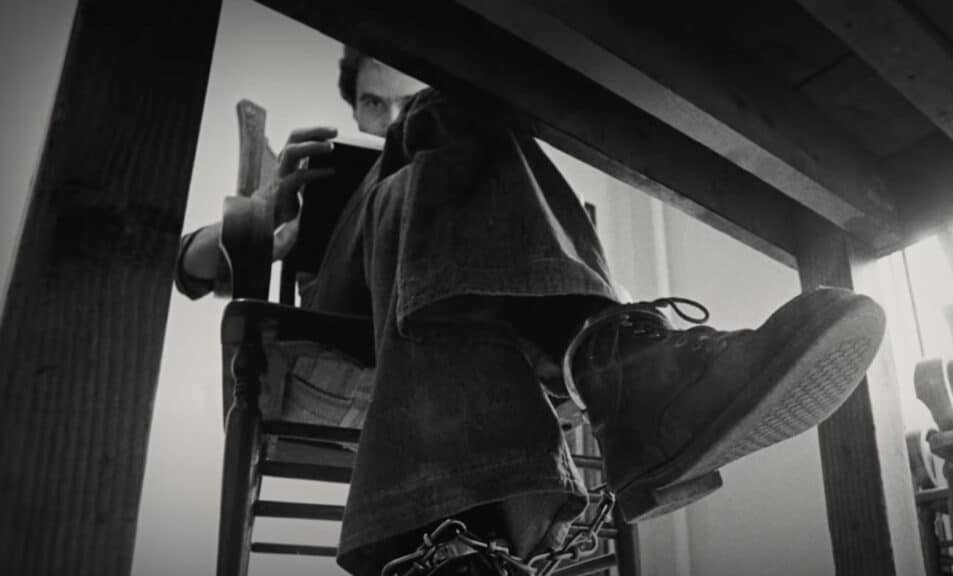* WARNING: Content may make readers extremely uncomfortable and includes discussions of exploitation, murder, and death. Viewer discretion is advised.*
“True Crime” podcasts, documentaries, TV series, and YouTube channels are engrained in pop culture. Yet, when looking at the depictions of “True Crime” in the media, one should wonder: is this use of the dead for entertainment moral? How do we ethically watch true crime in the modern age?
“True Crime” has become a popular fad in current pop culture. Whether it be through podcasts, YouTube videos, TikToks, or documentaries, people can’t seem to get enough. Yet, there’s something gruesome about entertainment companies and content creators profiting off death. While many people in the world love “True Crime”, it’s important to consider the ethicality of viewing this content. Is “True Crime” moral, and (if not) how do we ethically watch “True Crime” in modern entertainment?
The Lows: “True Crime” YouTube
There’s something inherently wrong and sinister with people telling you about the murder of innocent people, usually whilst doing their makeup or eating food. The fact that they also make money by putting ads on it makes it much worse. Even though YouTube creators sometimes openly state that their videos are made for informational purposes, or they may provide a charity link for the families, their intentions towards making this content can be very questionable.
While YouTubers make content that rehashes popular cases and popularizes new ones, it is debatable whether this content is ethical or not. With this content usually being over-sensationalized and bringing the creators monetary profit, it’s probably best to assume that this content isn’t quite ethical to watch. It’s even more unethical if someone discusses a sponsorship before or is participating in a mukbang while discussing the gruesome details.
The Hidden: Publication Without Permission
Developing crime stories into TV series and movies is increasingly common in entertainment. Yet, the creation of this media is problematic when media corporations aren’t receiving permission from the victim’s family to create these works. There have been several cases of “True Crime” TV where a series has been in the works against the protests of the victim’s families.
@jpresttt on TikTok shared her experiences regarding a Hulu documentary publicizing the story of her sister’s murder. Delta Airlines took the documentary off their flight movie list due to @jpresttt’s protests on her TikTok. Nonetheless, she has struggled with getting Hulu to take the documentary about her sister’s murder off the platform. Many commenters on her TikTok posts suggest and wonder if she could take the media corporation to court over this. Yet, because all the information of these crimes is in the public record, corporations can still make content about them. With platforms to protest these companies being very difficult to gain, one should wonder how often this happens with “True Crime” documentaries. As a result, we should always consider whether the victim’s families approve or consent to this media.
How Do You Watch “True Crime” Ethically?
It’s becoming more and more difficult to watch “True Crime” in a fully ethical manner. Yet, there are steps that you can follow to be a bit more ethical in your “True Crime” watching habits:
(1) Make sure the media got permission from the victim’s families
As previously said, large-scale media corporations (for example, Hulu) own several popular “True Crime” documentaries/TV series. Several of these shows and movies ignore the wishes of the victim’s families. Like @jpresttt on TikTok, these families/friends don’t desire for these shows to tell their deceased loved one’s story. This can be because it’s painful for the families or the families don’t want over-sensationalizing of the case. Families can also be afraid that the documentary will humanize the murderer of their loved one(s). It is simply unethical to watch these documentaries that lack permission.
(2) Make sure that the media doesn’t over-sensationalize the crime
Sometimes, the “True Crime” media will over-exaggerate or use overly gruesome language in order to get views/clicks. Some news sites, content creators, and media corporations don’t care about the story, but only the profit. Be wary of this true crime media.
(3) Are reasons that message or profit are prioritized in the media?
“True Crime” media should focus on one of two things: (1) to inform or (2) to support the families left behind without an answer. If the media is focused on any other reason (whether for money or advertisement), it’s probably not ethical to watch.
Reconsidering Ethics in Entertainment
Sometimes, it’s difficult to remove the idea that these stories are real from the fact that we watch them as entertainment. Though it may limit our entertainment, it is important that we practice ethically watching “True Crime.” It is essential that we remember that there are real people and families behind these stories. Once we forget this, we become as inhumane as these crimes we are told about.














